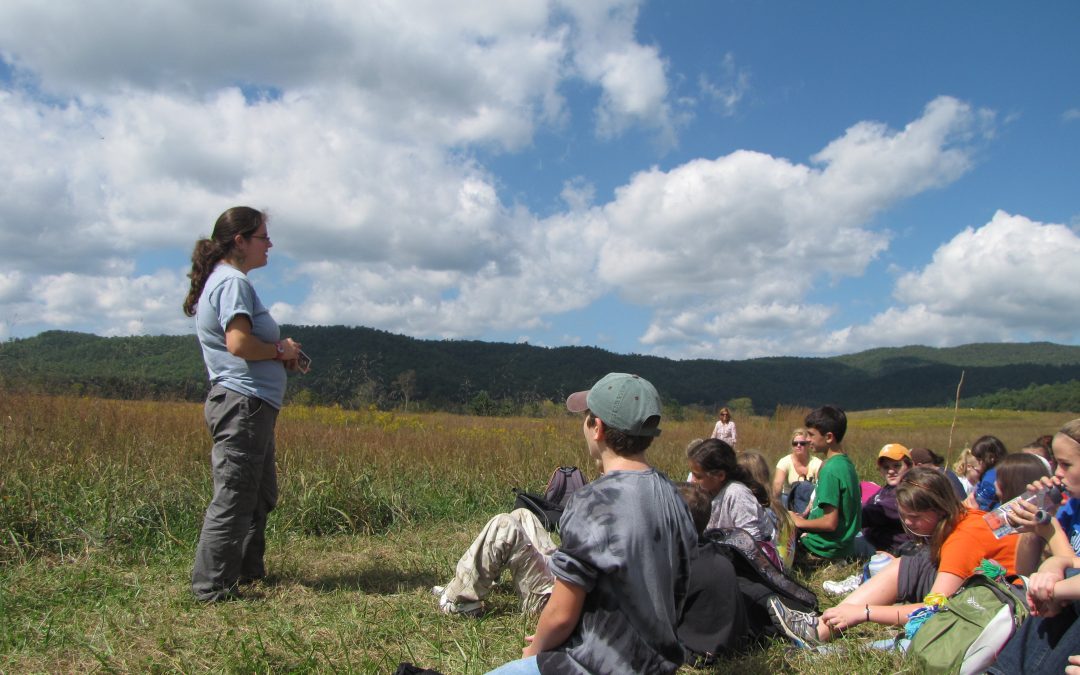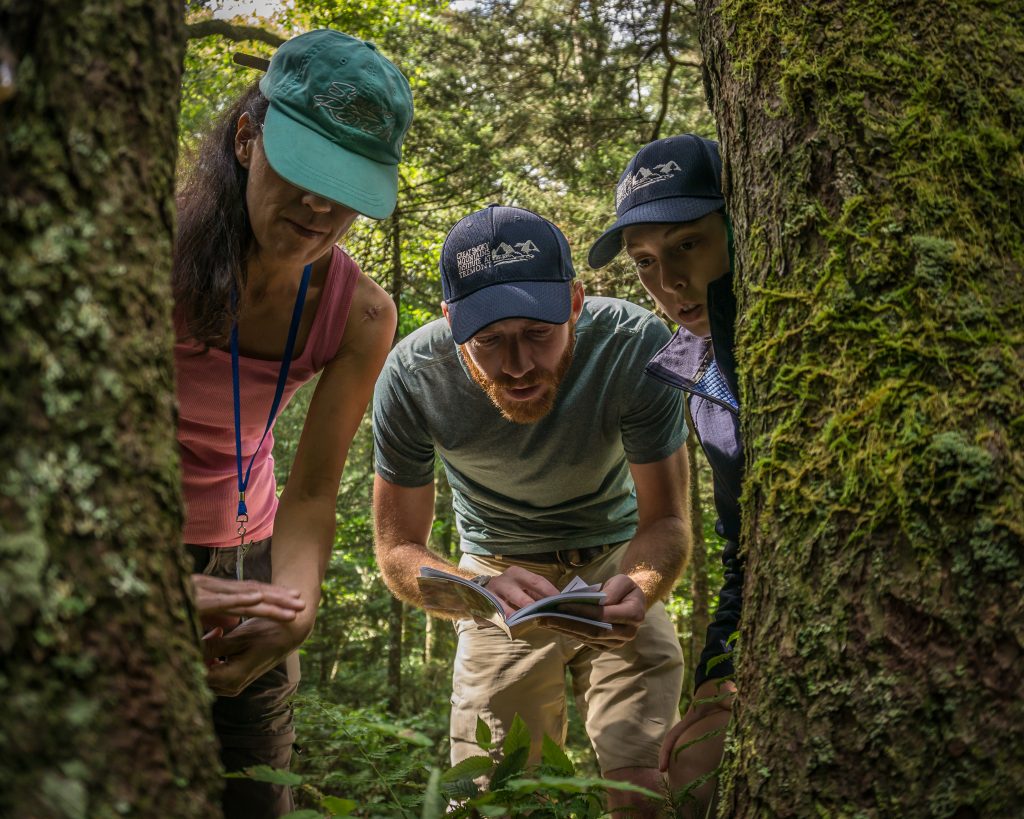By. John DiDiego
What is Tremont Institute?
“I wish school could be like this all the time.” – student quote
This quote, more than any data, outcomes, or metrics, captures the essence of what we hope for students and teachers who participate in our school programs at Great Smoky Mountains Institute at Tremont. But what does it mean?
It has everything to do with connection. The Tremont experience fulfills that deep human need for connection – to other people, to the world around you, and to yourself. For over 50 years, we’ve provided opportunities for residential learning experiences in Great Smoky Mountains National Park. While our audience includes all ages, the bulk of our programs focus on students and teachers from elementary grades through college. We work with teachers to craft three- and five-day programs to ensure their goals align with the experience, and of course, many of these teachers return year after year with new students.
In my 12+ years as education director, I’ve noticed teacher expectations follow a pattern over the course of time. During the first couple of years, it’s all about standards and specific classes and content. “We have to cover food chains” or “Our students need to understand nitrogen or CO2 cycles.” Often this is couched in the need to ‘justify’ or ‘get approval’ for bringing students to Tremont.
After about four or five years, a shift occurs. There’s less talk about specific topics and more of a desire to shape a shared experience. When asked, teachers talk more about a change in the teacher-student relationship and how that change unlocks something that brings meaning and energy to their classrooms for the rest of the year. We know this is happening when we ask for class preferences and the response is, “Just do what you do best.” We’ve had teachers share how their students treat each other differently, how the classroom’s climate changes. Self-awareness, social connection, student-teacher relationships…these are what matter in the long run. In this time of COVID-19, they may be the most important things we can promote.
Emergence of Deeper Impact: The REEP Experience
In 2018, Tremont was selected to take part in the Residential Environmental Education Partnership (REEP), a two-year collaboration among ten residential learning centers to advance our understanding of social-emotional learning (SEL) during overnight school programs. For many of us, this was a watershed moment – while our brochures all touted outcomes like “academic achievement, multiple disciplines, and critical thinking,” we realized the most powerful and lasting impacts from a residential program likely fall in the social and emotional realm. This is what drives the positive change in classrooms, relationships, and learning that teachers tell us about. We just never thought of it as something we DID.
The work of this collaboration coalesced in Grow-Outside, a web-based resource and best practice guide for residential learning centers across the country. At its core, Grow-Outside makes the case that a key outcome from experiences at our centers is SEL, and that SEL is foundational to learning, connecting to self and others, and fostering an overall sense of well-being.
Pivoting to Meet the Needs of Schools in Pandemic Mode
Understanding this connection – between shared experiences, student-centered learning, SEL, and what we always knew about the healing power of time spent in nature – enabled us to provide much-needed resources, respite, and healing during the disruption felt as a result of isolation brought about by COVID-19.
The first major challenge for us was figuring out how to fund and provide this powerful experience when all our residential programs (i.e., 80% of revenue) had to be canceled due to the public health risk. As outdoor education professionals, we also had to overcome our aversion to providing a ‘virtual’ experience! But with some creativity and practice, we found we could craft learner-centered and even exploratory experiences in a virtual format by using facilitated discussion, screen breaks, and visual collaboration tools.
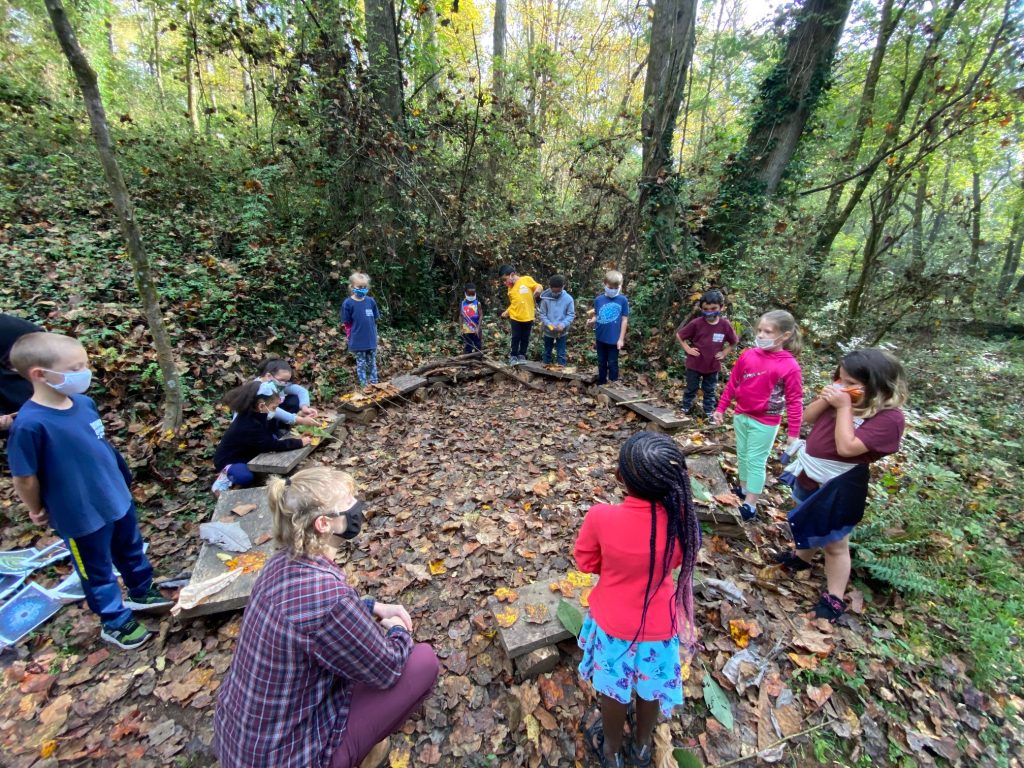
Another part of the challenge was expanding our primary audience base. In normal times, overnight school programs require our staff to focus on these as both teacher professional development opportunities AND student learning experiences. In the absence of on-site school programs and the emergence of new needs due to the pandemic, we plotted three broad approaches to meet the current needs of both traditional and new audiences:
- Connecting with homeschool groups and parents overseeing ‘virtual’ school for their children.
- Shifting our teacher professional development from a content-oriented focus to SEL.
- Continuing to host our naturalist certification courses, photography workshops, and other adult programs in small in-person groups.
Innovative Programs for Difficult Times
The cancellation of our school programs meant we had to find creative ways to leverage our professional educators, given the needs expressed by teachers. Two programs emerged.
Weekly Wonder
Weekly Wonder is a series of family-oriented nature challenges that combine science skills in the natural world with attention to the social and emotional needs of learners. While Weekly Wonder was initially targeted for homeschool parents and families, we found it was a natural fit for teachers too. Using grant funding from the CARES Act and National Park Foundation, we created nine episodes over nine weeks in fall 2020. The program includes:
- A video invitation to a nature challenge that arrives via email on Monday.
- Participant engagement through submitting photos, journal pages, and other artifacts during the week.
- A livestream with Tremont staff on Friday to share everyone’s discoveries.
Matt Kuensting’s fifth-grade class in Missouri’s Columbia Public Schools were regular contributors to Weekly Wonder. Matt’s students were engaged in virtual learning during the fall and participating in this program gave him and his students a much-needed break from their computer screens. He found it accessible and flexible, providing a lot of choice on where they went and what they looked for. It also helped his students overcome their lack of interest and engagement in virtual learning. According to Matt, “[Weekly Wonder’s] value overall – it’s getting kids outside, it’s getting them excited about science. It’s allowing me to have really awesome discussions with students about the wheres, the whys, [and] the whats.” This winter, with help from Matt and other teachers, we are busy co-creating the second season of Weekly Wonder. Whatever school looks like these days, you can join in the fun by visiting the Weekly Wonder webpage.
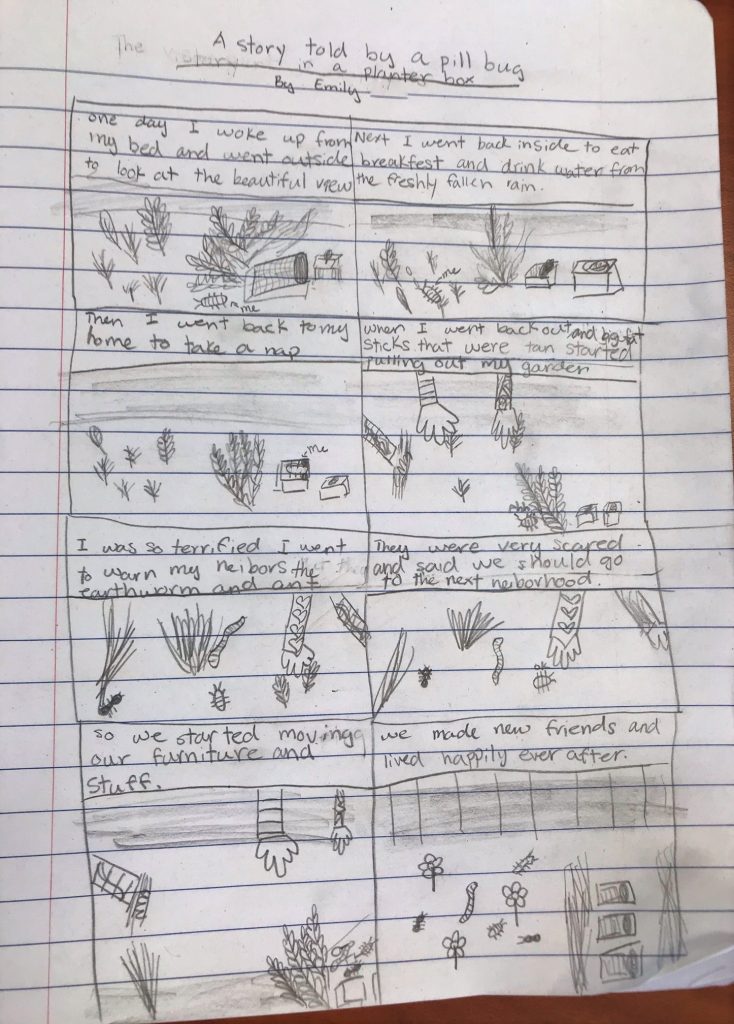
Community for Schoolyard Teaching and Learning
In late spring 2020, we heard from local teachers who felt disoriented, isolated, and deeply troubled by the experience of abruptly shifting to virtual teaching. “[We need] help conducting effective online teaching. We have gotten very little guidance from our district,” was how one teacher put it. A survey of local teachers made it clear that teachers were in desperate need of social and emotional support. As reported in an October 2020 Education Week article, teachers can’t provide social and emotional support and learning for students if they don’t have it themselves. Here was an opportunity to leverage Tremont’s expertise working with teachers and learning outdoors to meet a current need. Together with a health educator from the Knox County Health Department and partial funding from the Arconic Foundation and National Park Foundation, we created the Community of Schoolyard Teaching and Learning. This is a collaborative community of practice where teachers connect with each other and share successes and challenges associated with teaching and learning outdoors, all within a caring and supportive network. Teacher responses say it all. “We seem to all be feeling the weight of the times! Good to know we are in it together,” was how one teacher put it. Another wrote, “This has been a little sanctuary. It has been a positive place to come together and enjoy sharing ideas in such a crazy time. The [Tremont] staff truly values connecting ideas, teachers, and students.”
Some of the network components include:
- Monthly calls and check-ins. Once a month, we come together on a video call for 90 minutes to share experiences and model effective online teaching. Over 35 teachers, administrators, and local education partners have participated in these gatherings.
- Teacher all-access pass. With help from our network, we are co-creating a host of additional resources for teachers in this community. Any teacher in this network can access these resources.
The Change We Want to See in the World
After embracing our new format and types of experiences, we at Tremont realized that we’ve changed right along with everyone else during this difficult time. And as with all productive struggle, we’re gaining new insights. These virtual platforms may serve us into the future, even after we resume our overnight school programs. They provide new opportunities for connecting to and supporting teachers before and after their overnight school trips. They provide parallel pathways that unlock ways to teach and learn in schoolyards. How? The resources and training provided through Weekly Wonder engage students in student-centered explorations whether they are at home or in school, and the Community for Schoolyard Teaching and Learning gives teachers a chance to relate their experiences, share best practices for outdoor learning, and feel the comfort of knowing they’re among peers and supporters.
We see the role of residential programs like Tremont as more than just a nice trip for schools and communities that can afford it. It’s an essential component of the school experience, providing pathways for authentic learning, human connection, and a deep sense of place in their community.
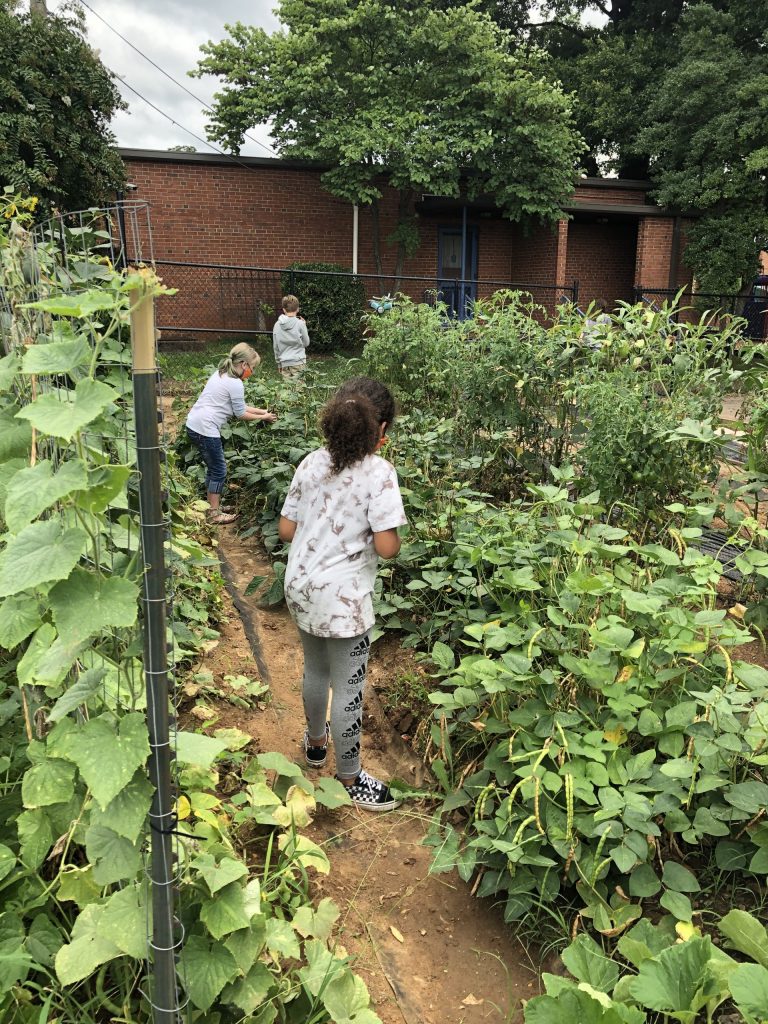
We think back to that student whose Tremont experience included feeling a sense of belonging, experiencing learning as FUN, seeing their teachers as the amazing people that they are, and being seen by them as well. She wanted her school experience to be like that all the time. We think it can be. We continue to imagine that if we embrace our teachers’ work and provide ways for them to unlock the magic of teaching and learning outside, we just might make that experience a reality for all students and their teachers.
Author Bio
John DiDiego is Education Director at Great Smoky Mountains Institute at Tremont. John grew up catching snakes and turtles in the creeks of upstate South Carolina, and he has never lost his love of wild things and wild places. He has a B.A. in English Literature from the University of Notre Dame and an M.S. in Natural Resources from the University of Wisconsin – Stevens Point. In over 25 years of experience in environmental education, he has worked in places as far flung as New England, Georgia, Yosemite National Park, and far eastern Russia; however, there’s no place he’d rather be than the southern Appalachians. He enjoys hiking, biking, kayaking, turning over logs, and playing/singing folk tunes.

